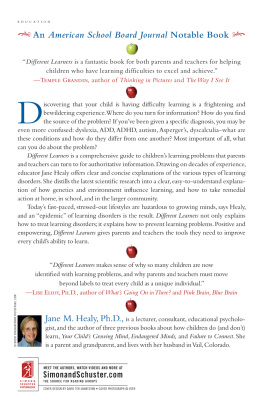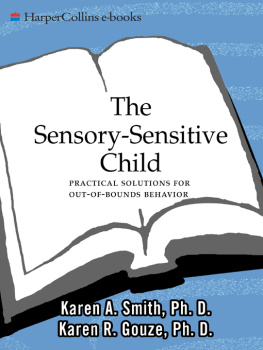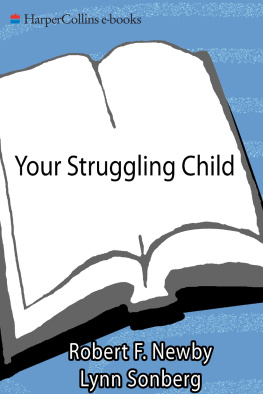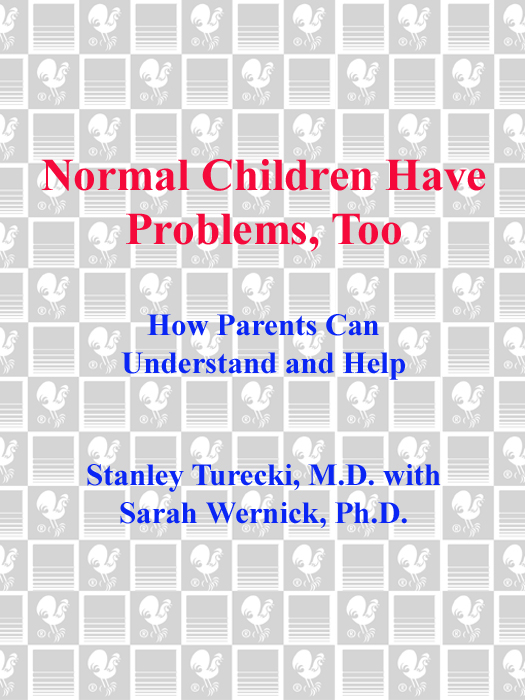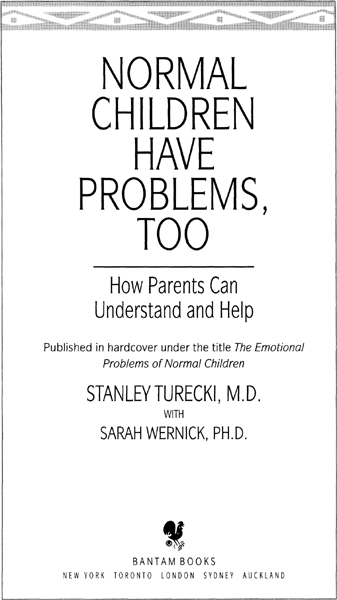Praise for Stanley Turecki and
NORMAL CHILDREN HAVE PROBLEMS, TOO
First-rate. Dr. Turecki rivets our attention with real-life examples of the emotional difficulties that can happen to normal children, and he offers practical ways that parents can help children overcome these challenges.
Barton D. Schmitt, M.D.
Professor of Pediatrics, University of Colorado School of Medicine, and author of Your Childs Health
Thank goodness! A wise, experienced professional voice gives normal children permission to have emotional problems. This forthright, practical, and sensitive book is a boon to parents, teachers, and other concerned adults.
Priscilla L. Vail
Learning specialist and author of Smart Kids with School Problems
A powerful and sensitive exploration of our most important alliance, parents and their children; and an extremely effective elaboration of successful management strategies for those most involved, the parents.
Lawrence Stone, M.D.
President, The American Academy of Child and Adolescent Psychiatry
Instead of blaming parents when a child is having problems, Dr. Turecki offers advice and insights that will help them become more confident and competent.
Nancy Samalin
Author of Love and Anger and Loving Your Child Is Not Enough
An excellent book for parents. Dr. Tureckis respect for the unique qualities and strengths of each child is very evident, as is his appreciation of the demands of being a parent.
Robert Brooks, Ph.D.
Assistant Professor of Psychology, Harvard Medical School, and author of The Self-Esteem Teacher
When things go wrong with our children, as they so often do, we worry and wonder. Dr. Tureckis splendid new book tells parents how to find and use professional help when it is needed and how to be ones own detective when it is not.
Louise Bates Ames
Associate Director, Gesell Institute
Written in a straightforward, lucid style with a common-sense approach to complex parent-child problems, Normal Children Have Problems, Too offers wise counsel and is very supportive of parents.
Clarice Kestenbaum, M.D.
Clinical Professor of Psychiatry, Columbia Universitys College of Physicians and Surgeons
This well-written book is full of insights to help parents guide their children through the storms of life.
Marguerite Kelly
Author of The Mothers Almanac and The Mothers Almanac II
Stan Turecki is one of the people I turn to when I need insight into childrens behavior. His new book will be a help to any parent!
Lawrence Kutner, Ph.D.
Child behavior columnist, Parents magazine, and author of
Parent and Child
Dr. Turecki has distilled a distinguished career of caring for children into a book to help parents. His advice is consistent, logical, and eminently practical, and never at the expense of the childs self-esteem.
Steven Parker, M.D.
Associate Professor, Department of Pediatrics, Boston University School of Medicine
To an incomparable womanmy wife
Suzie, with all my love and gratitude.
CONTENTS
PART I:
C HAPTER 1:
C HAPTER 2:
C HAPTER 3:
C HAPTER 4:
C HAPTER 5:
C HAPTER 6:
C HAPTER 7:
PART III:
C HAPTER 8:
C HAPTER 9:
C HAPTER 10:
PART IV:
C HAPTER 11:
C HAPTER 12:
ACKNOWLEDGMENTS
The families in my practice, and the parents and professionals who have asked questions and made comments at my lectures, are primarily responsible for the evolution in my thinking that led to the writing of this book.
Sarah Wernick, my collaborator, has brought formidable intelligence and writing skills, as well as outstanding professional dedication, to our venture. She quickly adapted her technique to reflect my personal style, and helped to expand, clarify, and organize my ideas. In addition, Sarah always displayed great sensitivity to the needs and concerns of parents.
Toni Burbank has been my editor at Bantam, both for this book and for The Difficult Child. Over the past ten years she has also become a close personal friend. Her deep understanding of the philosophy behind my approach and her support for some of my less conventional ideas have allowed me to write a book Im very proud of.
I have continued to expand my horizons as a result of my contact with many knowledgeable colleagues. In particular I want to pay tribute to Stella Chess, M.D., and Alexander Thomas, M.D., pioneering researchers in the field of temperament, and T. Berry Brazelton, M.D., the eminent developmental pediatrician, author, and lecturer.
On a day-to-day basis, I am fortunate to be associated, at the Difficult Child Center, with Steven Friedfeld, C.S.W., a kind, gifted, and highly accomplished psychotherapist, and Wendy Padawer, Ph.D., a sensitive and talented cognitive-behavioral psychologist. Ruth Johnson, our multi-faceted office manager provides a warm and reassuring presence for parents, children, and staff.
I am very grateful to the colleagues, friends, and parents who read early drafts of the book, and made many helpful comments. William Lockeretz, Ph.D., and Barbara Soferparents as well as writers and editorsapplied their considerable talents to the entire manuscript. My appreciation to them and to Molly Anderson, Ph.D., Jonathan Cohen, Ph.D., Gail Glickman, Lisa Greenfield, Alfie Kohn, Lawrence Kutner, Ph.D., Marya Dantzer Rosenthal, and Tina Teken. Confidentiality prevents me from mentioning by name the parents in my practice who offered their ideas and comments, but they know how appreciative I am.
My heartfelt thanks to my wife Suzie, a caring mother and an enthusiastic participant in countless discussions and brainstorming sessions. She has illuminated many problems with her insights and suggestions. Even more important, she provides the love and support so necessary to my development as an author, psychiatrist, and human being.
INTRODUCTION
I am a child and family psychiatrist and the author of The Difficult Child, a book about young children whose temperamentthe innate aspect of their personalitymakes them hard to raise. I wrote it to relieve parents of unwarranted guilt, and to show them how to understand and manage their childs puzzling behavior.
My personal experience as a father and a stepfather has always influenced my professional views, so I am very open to learning from parents. Publication of The Difficult Child in 1985 greatly expanded my contact with mothers and fathers: I received thousands of letters and was invited to lecture all over the country. At these lectures I would often be asked questions regarding older children or those who were not particularly difficult. Temperament in these instances was only one piece of the puzzle. Many parents were also concerned about problems that were significant enough to interfere with the childs well being, but not at the level that clearly required professional help.
Most of the parents at my lectures or in my practice had read The Difficult Child. Repeatedly, I heard that they had benefited primarily because my approach helped them to understand their child better and to look at his or her problems differently.
Gradually, as my perspective broadened, I began to think about expanding my focus on individuality and my faith in parents to a much wider range of ages, problems, and causes.


